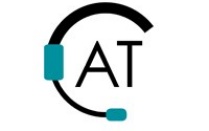Full citation
Ozlati, Shabnam. (2015). The Moderating Effect of Trust on the Relationship between Automomy and Knowledge Sharing: A National Multi-industry Survey of Knowledge Workers. Knowledge and Process Management. Vol. 22, No. 3. p. 191-205.
Research notes:
Format: Peer-reviewed journal article
Type: Research non experimental
Experience level of reader: Fundamental
Annotation: Knowledge sharing is arguably the most important phase of knowledge management. Research into knowledge management is still maturing as a research field, with less known about individual behavior than organizational trends. Research studies on knowledge sharing conflict: some support the theory that individuals share knowledge with hopes or expectations for some personal outcome; and others substantiate claims actors are motivated to contribute to the group. The contradictory findings suggest other factors influence motivations or researchers need to qualify motivations more precisely. Autonomy and motivation can be rated on a scale rather than coded in a binary. There is a correlation between actors’ autonomy and their tendency to be extrinsically or intrinsically motivated. Trust is another dimension of motivation.
Setting(s) to which the reported activities/findings are relevant: Community, Federal Lab, Government, Large business, Small business, University.
Knowledge user(s) to whom the piece of literature may be relevant: Brokers, Clinicians, Policy makers, manufacturers, researchers.
Knowledge user level addressed by the literature: Basic
This article uses the Commercial Devices and Services version of the NtK Model
Primary findings
Barriers
Mutual trust for trusts sake cannot be established without effort and time. The conditions necessary for information sharing must be built incrementally. The phases of trust between agencies are economy-based, information-based (behaviors are reasonably predictable), and lastly identification based trust.
Survey findings
Occurrences within model: KTA 7.C, NtK 4.1, 4.4, 4.6
Carriers
- Sharing knowledge among researchers and practitioners offers many benefits: producing knew knowledge, facilitating skills development, increasing collaboration, improving problem solving and sustaining competitive advantage.
Survey findings
Occurrences within model: NtK 4.1, 4.4, 4.6 - Increasing worker autonomy increases knowledge sharing.
Survey findings
Occurrences within model: NtK Step 3.3, NtK Gate 7, KTA 6.D - Knowledge sharing is correlated with better employee performance and retention.
Survey findings
Occurrences within model: NtK Step 1.5
Tips
Employees in controlled work environments generally expect external rewards for participating in KT, i.e. to receive a cash bonus or to comply with a superior’s demands. Autonomous workers are more likely to share knowledge to serve individual goals, to appear knowledgeable, or for the personal satisfaction of sharing.
Survey findings
Occurrences within model: NtK Step 3.3, 3.9
Methods
Trust between agencies can be economically-based or institution-based trust, or belief that the agency has the means to fulfil obligations. Individuals earn partners’ trust by displaying abilities (competence-based) or trustworthiness (benevolence-based trust).
Survey findings
Occurrences within model: NtK 4.6
